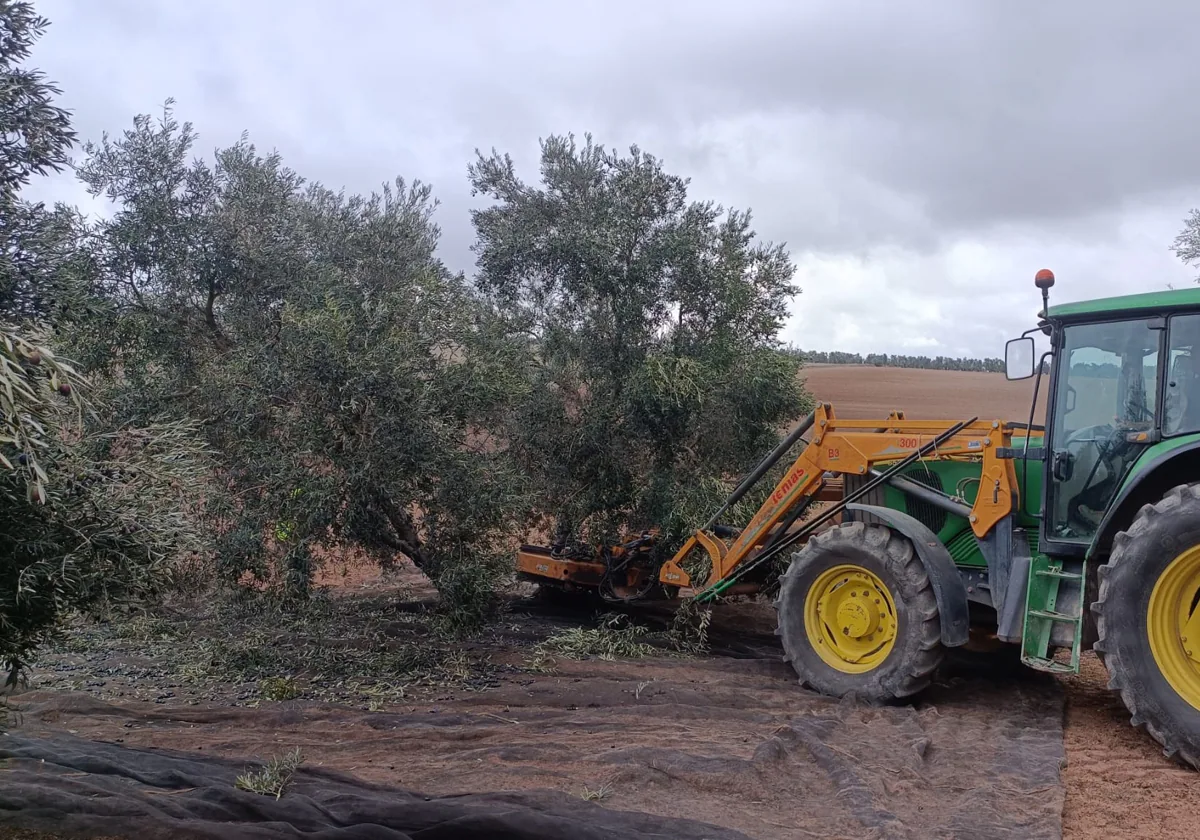Many Malaga farmers breathe a sigh of relief due to accumulated rainfall, despite 'Dana' damage
Citrus trees in the Guadalhorce valley and subtropicals in the Axarquia are the worst affected, but the downpours have warded off the spectre of drought - for now
SUR
Malaga
Wednesday, 20 November 2024, 11:57
There are phrases that define in a few words what the heavy rains that fell on Malaga province last week have meant. "You know that what you are going to sow will grow, we won't have any problems." This is what the president of the Campillos Cooperative, Benito Avilés, said as he drives his tractor across a farm he uses to cultivate cereal crops.
After years of uncertainty and money thrown away on crops that have not grown due to lack of water, November 2024 already marks a clear change of cycle for agriculture in Malaga province. For the first time, the accumulated water in the reservoirs is improving the drought situation and giving back guarantees to farming professionals who have had a very hard time in recent years.
In SUR's survey of farmers and heads of agricultural associations, adjectives such as "marvellous" and "reassuring" were used when asked about the effect the rains will have on the countryside. The secretary general of the UPA union for small farmers, Francisco Moscoso, said that "this water brings a lot of benefit to the countryside" and detailed that the positive effects will be felt in the short and medium term. The rains arrived at the start of the olive harvest in Malaga. According to Moscoso, these rains "finished off the fruit" and "have come at the best possible time". With healthy, good-sized olives, oil production in the province is expected to increase. And with greater production, there should be a drop in the price of oil on the shelves.
After the olive groves, cereals are another important crop in the province. Along with subtropical crops, cereals have suffered most from the lack of water in recent years. In the area north of Antequera or in municipalities such as Teba, known as the breadbasket of the province, many investments that have not been translated into harvests. With the water infiltrations that the countryside has obtained and the reserves for irrigation, everything points to the next harvest being a sign of recovery. "This water has changed everything a lot. Before, you sowed with uncertainty," sums up Avilés.
The president of young farmers association Asaja, Baldomero Bellido, confirmed the positive effects of the rains for the countryside. "The latest rains are being received by farmers and livestock breeders in an extraordinary way," he summarised. However, he also regretted the damage caused on farms, where the force of the Dana has caused destruction. Asaja is assessing the preliminary damage, centred on the rural areas of Axarquía and the Guadalhorce Valley, where torrential rains and overflowing rivers "devastated" crops and irrigation systems.
The mayor of Cártama, Jorge Gallardo, confirmed to SUR that many citrus farms (oranges and lemons) have been completely destroyed. This endangers the livelihoods of many farmers in the area who have had two years in which the prices of these fruits have been at rock bottom. After selling even below the production price, they are not in a position financially to start from scratch.
Axarquía
Crops in the Axarquía where the most rain fell have suffered, especially in La Zubia and the Benamargosa riverbed, where there has been significant flooding, Asaja reports that lemon and avocado crops have suffered heavy losses. This is also the opinion of Víctor Luque, general manager of Trops. "Our technicians are assessing the damage to trees, irrigation systems, tool sheds and wells, which have been carried away by the flood," he explained.
The cooperative is also studying possible actions to help those affected. At least Trops' central facilities weathered the storm well. "The early warning of what has happened in Valencia has made citizens and companies aware; all our employees worked from home," he pointed out.
